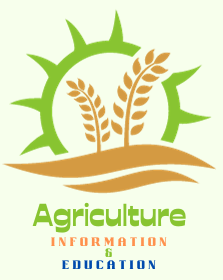Introduction:
Hybridization, a fundamental technique in crop improvement, has been instrumental in transforming agriculture by creating plants with desirable traits through the controlled crossbreeding of different varieties or species. This process has significantly contributed to global food security and sustainability by enhancing various aspects of crop performance. The role of hybridization in crop improvement is diverse and encompasses key elements such as increased yield potential, uniformity, disease resistance, adaptability to environmental conditions, accelerated breeding processes, seed purity, crop quality improvement, exploitation of heterosis, diversification of the genetic pool, and economic benefits for farmers.
Increased Yield Potential:
A primary objective of hybridization is to boost the yield potential of crops. By crossing two genetically distinct parent plants, the resulting hybrid often exhibits a phenomenon known as heterosis or hybrid vigor. This phenomenon leads to the development of offspring with superior traits compared to their parents, including higher yield, improved growth rate, and enhanced overall productivity. The increased yield potential is crucial for meeting the growing global demand for food and ensuring food security.
Uniformity and Consistency:
Hybridization contributes to the development of crops with a high degree of uniformity. Hybrid plants tend to display consistent traits, such as size, flowering time, and maturity, making agricultural management practices more predictable. This uniformity simplifies tasks like planting and harvesting, providing farmers with greater control over their operations. Consistent crops are also advantageous for post-harvest processing and marketing.
Improved Disease Resistance:
The controlled crossbreeding involved in hybridization allows the combination of resistance traits from one parent with desirable agronomic traits from another. This strategy enhances the disease resistance of the resulting hybrid, providing a broader spectrum of protection against pathogens. Reduced susceptibility to diseases and pests contributes to sustainable agriculture by minimizing the need for chemical pesticides, promoting environmental health, and ensuring stable crop production.
Enhanced Adaptability to Environmental Conditions:
Hybridization is crucial for developing crops with improved adaptability to diverse environmental conditions. By combining genetic traits from different parents, hybrids can exhibit tolerance to factors such as drought, heat, cold, and soil salinity. This adaptability is essential for ensuring stable crop production in varying agroecological zones and mitigating the impact of climate change on agriculture.
Accelerated Breeding Process:
Traditional breeding methods can be time-consuming, especially when introgressing multiple desirable traits into a single crop variety. Hybridization accelerates the breeding process by combining desired traits from different parents in a single generation. This not only reduces the time required to develop new crop varieties but also allows breeders to respond more quickly to emerging challenges and opportunities in agriculture.
Seed Purity and Hybrid Seed Production:
Hybrid varieties often produce more uniform and stable seeds compared to open-pollinated varieties. This seed purity is valuable for commercial agriculture, as it ensures the stability of desirable traits in subsequent generations. Hybrid seeds are typically produced through controlled pollination, enabling farmers to purchase seeds with known performance characteristics. This reliability enhances the efficiency and effectiveness of modern agricultural practices.
Crop Quality Improvement:
Hybridization contributes to the improvement of crop quality by allowing breeders to select parent plants with specific desirable traits. These traits can include nutritional content, taste, and shelf life. By combining these qualities through controlled hybridization, breeders can develop crops that meet consumer preferences and market demands. Improved crop quality not only enhances consumer satisfaction but also creates opportunities for value addition in the agricultural supply chain.
Exploitation of Heterosis:
Heterosis, or hybrid vigor, is a phenomenon where the hybrid offspring displays traits that surpass those of its parents. Exploiting heterosis through hybridization is a key strategy for achieving improvements in crop performance. This increased vigor can manifest in various ways, such as faster growth, larger fruit size, and enhanced stress tolerance. Harnessing heterosis is essential for developing crops that can thrive in challenging environments and contribute to sustainable agriculture.
Diversification of the Genetic Pool:
Hybridization introduces genetic diversity into crop populations, which is essential for maintaining resilience in the face of changing environmental conditions and evolving pest and disease pressures. A diverse genetic pool provides a broader range of options for breeders to develop crops that can adapt to unforeseen challenges. Genetic diversity also plays a crucial role in mitigating the risk of crop failure due to unforeseen environmental or biological factors.
Economic Benefits for Farmers:
The adoption of hybrid crops can offer economic benefits for farmers. Higher yields and reduced losses due to diseases or pests contribute to increased profitability. Additionally, the uniformity and consistency of hybrid crops simplify agricultural management practices, leading to resource efficiency. Farmers who adopt hybrid varieties often experience improved economic returns, making hybridization a valuable tool for enhancing the economic sustainability of agricultural operations.
Conclusion:
In conclusion, hybridization has emerged as a cornerstone in the realm of crop improvement, playing a pivotal role in addressing global challenges related to food security, environmental sustainability, and economic viability. By combining desirable traits from different parent plants, hybridization has enabled the development of crops with increased yield potential, enhanced disease resistance, adaptability to diverse environmental conditions, and improved overall performance. As agriculture continues to evolve and face new challenges, the ongoing application of hybridization, often in conjunction with modern molecular breeding techniques, will remain a key strategy for developing crops that meet the needs of a growing world population in a changing climate. It is imperative for researchers, breeders, and policymakers to continue supporting and advancing the science of hybridization to ensure a sustainable and resilient future for global agriculture.


Very good
Good information
👍👌👏
Increased yield potential is interesting. Rapid production of the crops substantially meets up the demand for food in our country. However excess use of fertilizers and chemicals in this process is harmful to our health. In Bengal, the disease of cancer patients is increasing very fast owing to taking such food items mixed up with chemicals. Nice Article.
Nice Direction